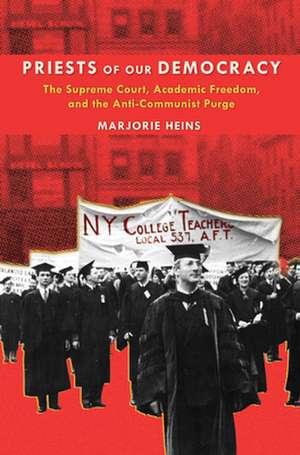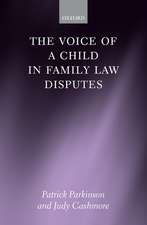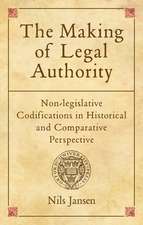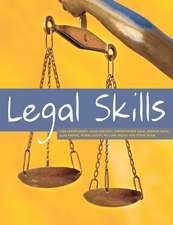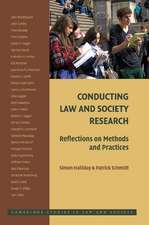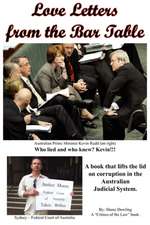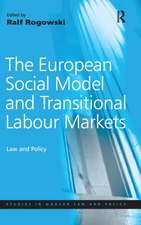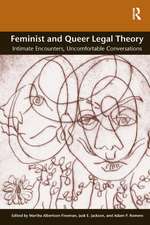Priests of Our Democracy – The Supreme Court, Academic Freedom, and the Anti–Communist Purge
Autor Marjorie Heinsen Limba Engleză Paperback – 21 dec 2013
| Toate formatele și edițiile | Preț | Express |
|---|---|---|
| Paperback (1) | 245.67 lei 43-57 zile | |
| Wiley – 21 dec 2013 | 245.67 lei 43-57 zile | |
| Hardback (1) | 530.74 lei 43-57 zile | |
| MI – New York University – 3 feb 2013 | 530.74 lei 43-57 zile |
Preț: 245.67 lei
Nou
Puncte Express: 369
Preț estimativ în valută:
47.01€ • 49.21$ • 39.13£
47.01€ • 49.21$ • 39.13£
Carte tipărită la comandă
Livrare economică 31 martie-14 aprilie
Preluare comenzi: 021 569.72.76
Specificații
ISBN-13: 9781479860609
ISBN-10: 1479860603
Pagini: 374
Dimensiuni: 153 x 227 x 27 mm
Greutate: 0.5 kg
Editura: Wiley
ISBN-10: 1479860603
Pagini: 374
Dimensiuni: 153 x 227 x 27 mm
Greutate: 0.5 kg
Editura: Wiley
Notă biografică
Recenzii
"A fascinating read. Heins creatively blends social and legal history to show how the right to academic freedom was forged out of the struggles and passions of America's worst days of political repression, and why academic freedom is more important than ever today. Nadine Strossen, Professor of Law, New York Law School"In this insightful and illuminating history of academic freedom and the Constitution, Marjorie Heins brings to life the characters, controversies, and cases that have framed the evolution of this critical and contentious realm of American liberty." Geoffrey R. Stone, Edward H. Levi Distinguished Service Professor of Law, The University of Chicago"Combining the legal insights of a constitutional scholar with the archival diligence of an historian, Marjorie Heins has written the definitive study of the Supreme Court's most important academic freedom decision. It's an engrossing account of the assault on educators during the McCarthy era that should be required reading for anyone who values our increasingly endangered First Amendment rights." Ellen Schrecker, Professor of History, Yeshiva University"Heins, a civil liberties lawyer and founder of the Free Expression Policy Project, tracks the collision of politics, academic freedom, free speech, and the Constitution in this dense, well-researched study
This compelling study demonstrates that precedent does not guarantee indefinite protection, and every generation must fight for its freedoms." - Publishers Weekly
"Well written, thorough, and full of personal details about the subjects, this is a telling account of teachers' struggle for academic freedom in America." - Library Journal
"A fascinating read. Heins creatively blends social and legal history to show how the right to academic freedom was forged out of the struggles and passions of America's worst days of political repression, and why academic freedom is more important than ever today." Nadine Strossen, Professor of Law, New York Law School "In this insightful and illuminating history of academic freedom and the Constitution, Marjorie Heins brings to life the characters, controversies, and cases that have framed the evolution of this critical and contentious realm of American liberty." Geoffrey R. Stone, Edward H. Levi Distinguished Service Professor of Law, The University of Chicago "Combining the legal insights of a constitutional scholar with the archival diligence of an historian, Marjorie Heins has written the definitive study of the Supreme Court's most important academic freedom decision. It's an engrossing account of the assault on educators during the McCarthy era that should be required reading for anyone who values our increasingly endangered First Amendment rights." Ellen Schrecker, Professor of History, Yeshiva University "Heins, a civil liberties lawyer and founder of the Free Expression Policy Project, tracks the collision of politics, academic freedom, free speech, and the Constitution in this dense, well-researched study...This compelling study demonstrates that precedent does not guarantee indefinite protection, and every generation must fight for its freedoms." - Publishers Weekly "Well written, thorough, and full of personal details about the subjects, this is a telling account of teachers' struggle for academic freedom in America." - Library Journal
"Well written, thorough, and full of personal details about the subjects, this is a telling account of teachers' struggle for academic freedom in America." - Library Journal
"A fascinating read. Heins creatively blends social and legal history to show how the right to academic freedom was forged out of the struggles and passions of America's worst days of political repression, and why academic freedom is more important than ever today." Nadine Strossen, Professor of Law, New York Law School "In this insightful and illuminating history of academic freedom and the Constitution, Marjorie Heins brings to life the characters, controversies, and cases that have framed the evolution of this critical and contentious realm of American liberty." Geoffrey R. Stone, Edward H. Levi Distinguished Service Professor of Law, The University of Chicago "Combining the legal insights of a constitutional scholar with the archival diligence of an historian, Marjorie Heins has written the definitive study of the Supreme Court's most important academic freedom decision. It's an engrossing account of the assault on educators during the McCarthy era that should be required reading for anyone who values our increasingly endangered First Amendment rights." Ellen Schrecker, Professor of History, Yeshiva University "Heins, a civil liberties lawyer and founder of the Free Expression Policy Project, tracks the collision of politics, academic freedom, free speech, and the Constitution in this dense, well-researched study...This compelling study demonstrates that precedent does not guarantee indefinite protection, and every generation must fight for its freedoms." - Publishers Weekly "Well written, thorough, and full of personal details about the subjects, this is a telling account of teachers' struggle for academic freedom in America." - Library Journal
Descriere
Descriere de la o altă ediție sau format:
Shows how the crushing of dissent in the 1950s impoverished political discourse in ways that are still being felt
Shows how the crushing of dissent in the 1950s impoverished political discourse in ways that are still being felt
